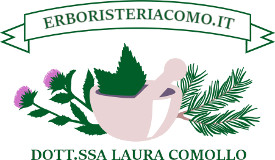Reflux esophagitis, with its typical symptoms, is an annoying and delicate problem that has been fought incorrectly for decades. Not everyone also knows that there are useful and natural remedies for acid reflux.
The multilayered squamous epithelium of the esophagus is resistant to food-induced trauma but is sensitive to acids. To protect the mucous membrane from them, nature has made sure that:
- submucosal glands of the proximal and distal parts of the esophagus secrete mucus and bicarbonate;
- constant muscle tone of the esophagus ensures the closure of the lower esophageal sphincter avoiding the reflux of gastric acid content.
Reflux of gastric contents into the distal esophagus is the leading cause of esophagitis and of outpatient diagnosis of gastrointestinal disease. The associated clinical picture is called gastroesophageal reflux disease, or more simply, reflux esophagitis.
Acid reflux: symptoms
Retrosternal burning and regurgitation (understood as the passive return of gastric contents into the pharynx), which however is not always present, typically identify gastroesophageal reflux disease (or reflux esophagitis), which the Montreal classification defines as “a a condition that develops when a reflux of gastric contents causes bothersome symptoms or complications”.
Gastroesophageal reflux symptoms have a non-negligible impact on the patient’s quality of life. Here are what they are:
- typical symptoms: heartburn, acid regurgitation;
- atypical symptoms:
esophageal: dysphagia, chest pain, hypersalivation;
extra esophageal: dyspepsia-epigastralgia, dysphonia-hoarseness, cough, asthma, pharyngodynia, ear pain, hiccups.
The diagnosis of reflux is essentially clinical: esophago-gastroduodenoscopy is generally used only in the presence of alarm signs suggesting situations that may require specific treatments, while functional investigations (pH-metry and pH-impedancemetry) are useful to characterize particular groups of patients and to guide treatment decisions when there is no response to initial therapies.
Acid reflux: physiological and non-physiological stomach acidity
In most cases, the treatment of acid reflux is based on reducing the acidity of the gastric contents.
Stomach in conditions of physiological pH is acidic and precisely has pH 2. The biochemical engine of the whole acid-secreting process is the enzyme H + K + -ATPase, that is the so-called proton pump. Why is it important that it has this pH? why physiological acid:
- neutralizes bacteria and other unwanted microorganisms introduced with food;
- promotes the degradation of proteins facilitating digestion;
- activates pepsin, a proteolytic enzyme essential for protein metabolism;
- activates the intrinsic factor, which is a glycoprotein produced in the stomach and necessary for the absorption of vitamin B12;
- stimulates the release of bile and digestive enzymes;
- closes the esophageal sphincter, which serves to protect the esophageal tissue from stomach acids;
- open the pyloric sphincter, allowing food to move from the stomach to the small intestine.
The stomach is healthy when the acidic pH remains constant around its pH. Problems arise when, for various causes and factors, the pH falls below its equilibrium point. We talked about this in our gastritis post.
Misuse and abuse of pump inhibitors and antacids: consequences
The Canadian guidelines published in the May 2017 issue of the Canadian Family Physician scientific journal indicate that the prescription of Proton Pump Inhibitors (PPIs) and antacids should be aimed at specific clinical situations and start from the balance between risks and benefits deriving from use excessive of these drugs. Gastroenterologists, pharmacologists and general practitioners (AIGO, SIF, FIMMG) have guidelines for prescribing Proton Pump Inhibitors to improve their appropriate use.
From this it emerged that as many as 43% of the prescriptions of these drugs are inappropriate and out of the AIFA indications and many times they are prescribed for too long compared to the indications. What is the problem that arises?
As for pump inhibitors: blocking acid production also means blocking the body’s ability to perform the basic functions that the acid produced by the body has. If taken for a long time, PPIs can result in:
- rebound acid hypersecretion
- absorption reduced of vitamin B12, iron, magnesium
- reduced bioavailability of calcium, with increased risk of fracture
- increased incidence of dementia (especially Alzheimer’s).
Rare side effects are:
- increased risk of both acute and chronic kidney disease
- inflammation of the intestinal mucosa with possible onset of Crohn’s disease
- risk increased (21%) of having an ischemic stroke
As for antacids: aluminum and magnesium hydroxides bring gastric pH to 3.5 by inactivating pepsin. While aluminum hydroxide slows down gastric and intestinal peristalsis and reduces gastrointestinal absorption of phosphorus, magnesium hydroxide causes a laxative action by osmotic effect. An incorrect use of antacids causes a rebound effect with a lowering of the pH level to values lower than the physiological ones.
Gastroesophageal reflux natural remedies not to be missed
On Erboristeriacomo.it effective and completely natural remedies against acid reflux can be found in synergy in this unique innovative product rich in scientific research and effective studies: Refluxaid is a class 2A medical device for oral use which, thanks to its mechanical action, is indicated for the reduction of symptoms related to gastroesophageal reflux and esophagitis.
The use of the product allows to limit the sensations of burning (heartburn), regurgitation, difficulty in swallowing (dysphagia), painful swallowing, cough, dysphonia. It does not contain gluten, GMOs and lactose; with no added sodium and no added sugars.
Our natural remedy is based on:
- magnesium alginate: it was produced using a patented technology through the reaction between alginic acid and magnesium oxide. When the alginate arrives in the stomach it precipitates forming a floating gel (“raft”) on the surface of the gastric contents. The patented technology allows to obtain high viscosity magnesium alginate which guarantees greater elasticity of the “raft”. This gel is placed on the pit of the stomach and acts as an anti-reflux barrier, preventing the rise of acid material. The absence of sodium in the formulation makes this product tolerable even in subjects with cardiovascular or renal diseases. It does not contain carbonate / bicarbonate and is therefore also suitable for hypertensive subjects, nephropaths and children. It also does not cause changes in pH.
- polysaccharides and mucilages from chamomile and lime: they calm gastric inflammation, counteract the heartburn and pain caused by poor digestion, protect the mucous membrane;
- essential oils from fennel, star anise and lavender: relieve heaviness, slow digestion and abdominal bloating.
Gastroesophageal reflux remedies and tips
We advise you, after consulting your doctor, in case of gastric reflux and oesophageal larynx, to associate the medical device mentioned above with our gastritis supplement. This will not only treat the symptoms but also act on the causes. In the case of only heartburn and gastritis without reflux, however, we propose to replace the medical device with our heartburn supplement which will also be associated with the gastritis supplement.
As for gemmotherapy, to be combined with therapy if necessary, the bud extracts usually recommended are fig and linden.
For any clarification or for more information Contact us.
Follow us on our Facebook and Instagram channels
ALL RIGHT ARE RESERVED, THIS TEXT IS NOT REPRODUCIBLE WITHOUT EXPRESS AUTHORIZATION OF ERBORISTERIA COMO.
The information contained in this site is presented for informational purposes only, in no case can they constitute the formulation of a diagnosis or the prescription of a treatment, and do not intend and must not in any way replace the direct doctor-patient relationship or the specialist visit. . It is recommended that you always seek the advice of your doctor and / or specialists regarding any indication reported.

